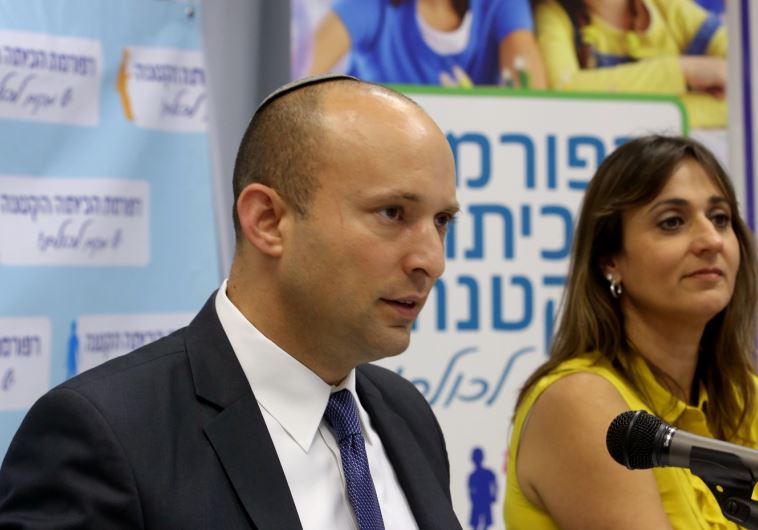'While Netanyahu freezes settlements, Bennett keeps quiet,' settlers say
Jewish settler leaders are ratcheting up the pressure on the Bayit Yehudi chairman.
 Education Minister Naftali Bennett announces small classroom reform(photo credit: SASSON TIRAM)Updated:
Education Minister Naftali Bennett announces small classroom reform(photo credit: SASSON TIRAM)Updated: